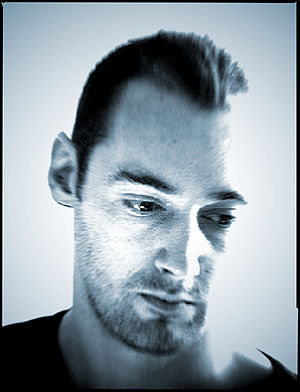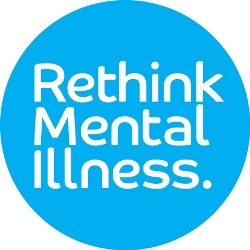
I’ve written about this topic before, but I decided to revisit it, since it’s one of the most popular things people search for on my blog.
Anyone who has suffered through a major depressive episode or clinical depression knows the feeling – a few things go badly, some misfortune piles up and you start to feel the dread. Dark thoughts creep in and anxiety seems to hang around like an unwanted party guest. You think to yourself, “Is this just a brief spell of mood swings, or will this snowball into a full-blown episode?” I’ve struggled with mood problems my entire life, but after a difficult divorce I spiraled into a massive depression. I never really understood how overwhelming the disease could be until I faced it myself.
Treating depression requires medical treatment in the form of therapy, medication or a combination of both. A quick top 10 list is not going to cure a mental illness. But if you need something to help keep your demons at bay, these tips might help. I know they’ve helped me prevent a few bad days from snowballing out of control. They might seem like common sense, but it’s good to have a reminder.
1. Reach out to Friends, Family or Loved ones – For some of us, our families might be the most toxic people in our lives. If that’s true for you, then by all means just try to connect with someone who is loving and supportive. Face time is a million times better than social media. Liking posts on Facebook and tweeting a buddy is not going to cut it. Get up and leave your house, have lunch with a friend, or hang out with a buddy after work. If nothing else call a friend. As much as we think we are alone, everyone has people who love and cherish them. If it helps, make a list of those people and put it in a place where you can find it easily, complete with phone numbers, emails, and other contact information. Avoid Isolation – When we’re alone we can control our environment, avoid negative people and focus on work. The downside is we are social creatures who function best around other human beings. Even if you can’t find a friend or loved one to hang out with, just sitting in a library or coffee shop with other people can help.
2. Volunteer or Help Others – Helping others always helps get you out of your head and you’ll probably get to interact with more people, which is another way of avoiding isolation. Again don’t just click a link on a website or sign a petition. Get out of your house or apartment and physically get involved. Studies have shown that volunteering can actually reduce depression symptoms.
3. Exercise – Physical exercise, especially cardiovascular exercise can help increase endorphins and other powerful chemicals in your brain. It won’t even cost a cent if you just decide to go for a walk, or do some yoga by yourself at home. Deep breathing can also help.
4. Eat – I completely lose my appetite, others might eat to try to fill the void. Know your tendencies and do what you can to try to stay on a healthy regime. I literally will write “Eat Lunch” on my ‘To Do List’ because otherwise I might actually forget to have a meal.
5. Hang out with a friendly animal – If you don’t have a pet, then find a friend who does. If you are allergic to the furry variety, even watching fish swimming around in a tank at pet store can help calm your mind. If you don’t like animals then go to a park, getting out and around nature can do wonders for your mood.
6. Find a Creative Outlook – Draw, write, paint, craft, bake, cook, sew, knit, play an instrument, whatever you love to do or make – do it. Musical instruments seem to help me more than anything, as does this blog. Surfing the internet, watching television and playing video games are passive activities. It’s really best to try to make something out of nothing. Creativity is one of the best ways to boost your brain. Some studies have shown links between creative people and higher rates of depression, but don’t let that discourage you. Creating something will give you a sense of accomplishment. Just be careful about how you spend that creative energy. If you’re feeling especially low, you might want to avoid work on that memoir about your divorce. Baking cupcakes might cheer you up instead. 🙂
7. Avoid Crazy-makers – Sometimes negative and destructive people are impossible to remove from your life. If your boss pushes you to the limit every day, there is little you can do about it. But if you are struggling with an ex-partner or spouse, then by all means try to give yourself distance.
8. Practice whatever therapy has worked for you in the past – For me its Cognitive Behavioral Therapy or CBT. I write it all out, my fears, the deep voices of dread and doubt that live inside of me and then I have to cognitively and logically destroy those voices. It’s not always easy, and it doesn’t work for everyone. Others might use meditation, acupuncture, aromatheraphy, biofeedback, massage therapy, yoga or any number of other alternative methods to help manage their depression. If something doesn’t work, then try something else. Don’t give up.
9. Avoid self-destructive behavior – Your well-meaning friends might encourage drug or alcohol use when you’re down. Substances are just a crutch that will exacerbate a depressed person’s symptoms. Getting loaded might make you feel better momentarily, but if you’re suffering from depression, the high won’t last. Other self-destructive behaviors could be gambling, binge eating, reckless behavior or a string of sexual encounters with virtual strangers. None of these are inherently bad, but anything done to excess can ultimately slow recovery.
10. Ask for Help – Probably the hardest one on the list, because if you have recovered from depression, the last thing you want to admit is that it’s back. But if you are having thoughts of self-harm, losing hope, or finding it difficult to simply feel joy, don’t be afraid to seek medical help. Depression is not a weakness of character, it’s a disease. Triggers for depression vary from person to person and some struggle with it for most of their lives, while others will have one brief episode and then never go through it again. You are NOT ALONE, and you are not a bad person because you are suffering. The reasons behind your depression are complex but it’s not your fault. If your first doctor or therapist doesn’t work out, keep searching. If CBT doesn’t work for you, then try any number of alternative therapies. If an anti-depressant doesn’t work out for you, then ask for a different prescription. If you think you are being over medicated, then tell your doctor. For many patients treating this disease involves a lot of trial and error. NEVER GIVE UP!
As a person who has suffered through this myself, you have my empathy. You’ll have times when you might lose hope, but so many of us have been there. It will get better. No one is fortunate all of the time, and no one lives in misery all of the time. We’ve all had our ups and downs and millions of us have also suffered from this horrible disease and recovered. It’s going to be OK. Hang in there. 🙂 I’ve included some other articles of mine on the subject and other links to use as resources. There is a lot of help out there, don’t be afraid to ask for it. 🙂
Related Articles
- Depression is an Illness – Why I can’t just snap out of it (julietjeskeblog.com)
- Dealing with Depression (Helpguide.org)
- Why Enabling Depression is Impossible (julietjeskeblog.com)
- Cognitive Behavioral Therapy (National Alliance on Mental Illness)
- Depression is such a bitch (julietjeskeblog.com)
- Depression Health Center (webmd.com)
- Growing up with Depression (julietjeskeblog.com)
- Depression’s Upside (nytimes.com)
- It’s Time to Bring Depression out of the Dark (huffingtonpost.com)
- Help for Depression: Treatment Methods (healthline.com)
Follow me on Twitter https://twitter.com/JulietJeske
Add me on Facebook Juliet Jeske Facebook Fan Page


